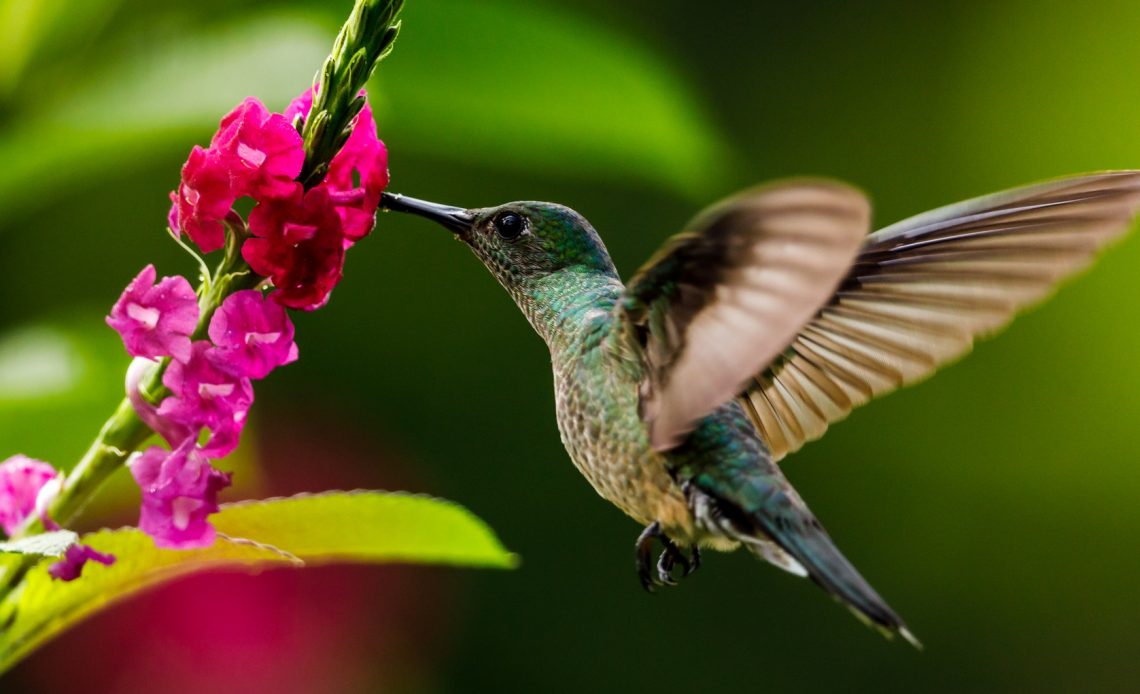

We’re here to help! Wild Yards is a completely free website that is 100% dedicated to helping you create a wildlife-friendly, sustainable yard. Read more
WildYards is reader-supported. When you buy a product through a link on our site, we may earn a comission. Every product is independently selected by our (obsessive) editors and our reviews are unbiased and objective. Read more about our mission or our privacy policy.
Many gardeners across the US enjoy growing and cultivating hydrangeas – they’re vibrant, have a fragrant bouquet, and can help to bring a variety of animals into the yard. With that in mind, you may be wondering – do hummingbirds like hydrangeas?
Hummingbirds like visiting hydrangeas. They can be a fantastic source of nectar – though different species will vary in how much they provide to visiting animals. Hydrangeas can be complex in that while they may look and smell nice, they don’t always deliver on the promises they make to pollinators!
Why should I plant hydrangeas to attract hummingbirds?
Hydrangeas can help to add much-needed color and nectar to any garden or wild yard. They are hardy, easy-to-grow plants, with a handful of variations growing native across the continent. Planting hydrangeas can arguably help to ‘complete’ the feel of a garden space – if nothing else, they are superb to look at from afar and to show off, too!
Of course, a key reason to plant hydrangeas (providing you’re doing so in USDA zones 3 up to 9) is for the potential wildlife that will come investigating. Butterflies love hydrangeas, for example, particularly the Pink Diamond and Lacecap variations.
There’s some evidence, of course, that hummingbirds like to dip into hydrangeas, too. However, much discussion regarding this is anecdotal. Plants and flowers that hummingbirds love tend to be highly colorful – and you may already know that hydrangeas can actually change their coloring depending on soil acidity.
Pinks, reds and blues are highly attractive to the typical hummingbird, regardless of the pollen or nectar available in the flowers.
Are hydrangeas the best flowers to attract hummingbirds?
While hydrangeas can and will give off plenty of nectar to pollinators, some are sterile. Therefore, hummingbirds are unlikely to return to these plants too often once they know they can’t feed from them.
Research has noted that hydrangeas attracting bees and wasps don’t necessarily have to give off nectar, but the flowers’ content is extremely important to keep animals coming back time and time again.
For example, types of hydrangea that are unlikely to attract hummingbirds include those with mopheads – they hold next to zero pollen or nectar interest for visiting creatures! Mophead hydrangeas are referred to as ornamental shrubs, in that they look great – but don’t serve a pollination purpose.
While it’s perfectly fine to plant hydrangeas otherwise and expect a small showing of wild activity, you’re perhaps more likely to see regular hummingbird visits with plants such as hibiscus, impatiens, bee balm, lupines and petunias. Hummingbirds show interest in Mandevilla, too, as well as other colorful vine plants you can grow across USDA zones 10 and 11.
Is it worth planting hydrangeas in my wild yard?
For all that, hydrangeas can be hit and miss when it comes to pollen and nectar, they can still add a lot of color and fragrance to a garden space. And yes, you will likely see a few hummingbirds flying around from time to time.
That said, there are more reliable plants and blooms you can cultivate to guarantee hummingbird visitors, as well as butterflies, bees, wasps, and other pollinators. If you want to keep bringing hummingbirds to your yard, you should avoid mophead hydrangeas at all costs!

I have impatiens, vinca, lantanas, geraniums in my front and back yards. At the beginning of the warm season in Ohio, we had a few hummingbirds visit our plants and the feeders. However, for the past month we have seen none in our yard…only one hummingbird moth which I had never seen in person before. Can you advise why we aren’t getting our sweet visitors this year? What are your suggestions for bringing hummingbirds back?